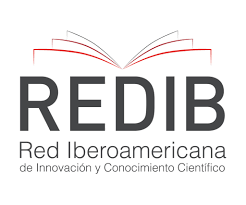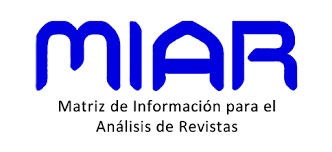The paradox of technology and the meaning of life
DOI:
https://doi.org/10.51743/cpe.337Keywords:
life, moral, mystery, reason, sense, technologyAbstract
Nowadays, technology is seen as a paradox: it brings both the promise of development, but, at the same time, the threat of destruction of nature. We can see in this tension the difference between two ways of using reason: the moral and the technical. Both are different from the simple knowledge of things because they are
ordered by the will. The different way of ordering the human act is seen above all in the act’s beginning — the desire and love; and the end it reaches in a communion of people that technology does not understand and does not know how to order. The inadequacy of leaving what is natural, and especially everything that refers to life, to technique alone is therefore seen. Life asks for a different logic that looks at the interiority and is open to mystery, only in this way is a true meaning of life that orders human acts found. This leads us to an ethic of care, which technology is not capable of ordering by itself, since it contains a clear will of power. For man to live in true hope, he must know how to see the paradox of technology from the paradox of life
whose meaning is found in giving life for a love that is open to eternity
Downloads
References
Abbà, G. (1992). Felicidad, vida buena y virtud. EIUNSA.
Alvira, R. (1978). La noción de finalidad. EUNSA.
Alvira, T. (1985). Naturaleza y libertad. Estudio de los conceptos tomistas de Voluntas ut natura y Voluntas ut ratio. EUNSA.
Archer, M. S. (2011). Identità personale e amore sociale. En J. J. Pérez-Soba, M. Magdič (a cura di). L’amore principio di vita sociale. “Caritas aedificat” (1Cor 8,1), (pp. 221-243). Cantagalli.
Aristóteles, (1960). Ética a Nicómaco. En Aristoteles Opera, ex recensione I. Bekkeri, Ed. Academia Regia Borrussica, W. de Gruyter et socios, Berolini, II, (1094a-1181b).
Aristóteles, (1960). Metafísica. En Aristoteles Opera, ex recensione I. Bekkeri, Ed. Academia Regia Borrussica, W. de Gruyter et socios, Berolini, II, (980a-1093b).
Barbour, I. (1993). Ethics in Age of Technology. Harper.
Benedicto XVI, (2005). C.Enc. Deus caritas est.
Benedicto XVI, (2007). C.Enc. Spe salvi.
Benedicto XVI, (2009). C.Enc. Caritas in veritate.
Biffi, I. (1987). Fondazione teologica-cristologica-ecclesiologica della morale. En AA.VV., Persona, Verità e Morale. Atti del Congresso Internazionale di Teologia Morale. Roma, 7-12 aprile 1986 (pp. 27-35). Città Nuova.
Biffi, I. (1998). Desiderio della salvezza e salvezza del desiderio. Prospettiva teologica. Rivista Teologica di Lugano (3), pp. 307-314.
Blondel, M. (1996; orig. 1893)). La Acción. BAC.
Botturi, F. (2004). Etica degli affetti? En F. Botturi, C. Vigna (a cura di). Affetti e legami (pp. 37-64). Vita e Pensiero.
Botturi, F. (2009). La generazione del bene. Gratuità ed esperienza morale. Vita e Pensiero.
Caffarra, C. (1989). Ratio thecnica. Ratio ethica. Anthropotes (5), pp. 129-146.
Concilio Vaticano II, (1964). Cons.Dog. Lumen gentium.
Concilio Vaticano II, (1965). Cons.Pas. Gaudium et spes.
Congregación para la Doctrina de la Fe, (1987). Ins. Donum vitae,
Cruz Prados, A. (2015). Deseo y verificación. La estructura fundamental de la ética. EUNSA.
Ellacuría, I., Sobrino, J. (1990). Mysterium liberationis. Conceptos fundamentales de la teología de la liberación, II. Trotta. DOI: https://doi.org/10.51378/rlt.v7i20.5696
Francisco, (2015). C.Enc. Laudato si.
Francisco, (2020). C.Enc. Fratelli tutti.
Gilligan, C. (1982). In a Different Voice. Harvard University Press.
Goethe, J. W. (19634). Fausto. En Obras Completas, III. Aguilar.
Gotia, O (2011). L’amore e il suo fascino. Bellezza e castità nella prospettiva di San Tommaso d’Aquino. Cantagalli.
Granados, J. (2013). La generatività, chiave di una sintesi teológica. Anthropotes (29/1), pp. 99-122.
Grindel, C. W. (1960). Ethics without a Subject. The Good in G.E. Moore. En Thomistica Morum Principia. Communicationes V Congressi Thomistici Internationalis. Romae, 13-17 Septiembris 1960, I (pp. 73-85). Officina Libri Catholica. DOI: https://doi.org/10.1093/english/13.73.17-a
Grygiel, S. (2002a). Extra communionem personarum nulla Philosophia. Lateran University Press.
Grygiel, S. (2002b). Il pensiero sorge nell’angustia inter vitam ac mortem. En J. Noriega, M. L. Di Pietro (a cura di). Né accanimento né eutanasia (pp. 25-46). Lateran University Press.
Heidegger, M. (2021). La pregunta por la Técnica, Herder.
Ibsen, H. (1959). Un enemigo del pueblo. En Teatro Completo (pp. 1361-1438). Aguilar.
Jaspers, K. (1988). La práctica médica en la era tecnológica. Gedisa.
Jonas, H. (1973). Organismus und Freiheit. Ansätze zu einer philosophischen Biologie. Vandenhoeck & Ruprecht.
Jonas, H. (1979). Das Prinzip Verantwortung. Versuch einer Ethik für die technologische Zivilisation. Suhrkamp.
Juan Pablo II, (1984). C.Ap. Salvifici doloris.
Juan Pablo II, (1993). C.Enc. Veritatis splendor.
Juan Pablo II, (1995). C.Enc. Evangelium vitae.
Kant, I. (1956). Grundlegung zur Metaphysik der Sitten. En Immanuel Kants Werke, IV, Wissenschaftliche Buchgesellschaft.
Kierkegaard, S. (1972). La malattia mortale. En Opere (pp. 621-692). Sansoni.
Kittay, E. F. (1999). Love’s Labor: Essays on Women, Equality, and Dependency. Routledge.
Leibniz, G. W., Clarke, S. (1980). Eloy Rada (Ed.). La polémica Leibniz-Clarke. Taurus.
Llewellyn, R. (2002). Qué verde era mi valle. Edhasa.
Mancilla, M. A. (2008). Espectador imparcial y desarrollo moral en la ética de Adam Smith. Servicio de Publicaciones de la Universidad de Navarra.
Marcel, G. (1935). Être et avoir. Aubier Montaigne.
Melina, L. (1999). Estatuto ético del embrión humano. En AA.VV., El inicio de la vida. Identidad y estatuto del embrión humano (pp. 92-112). BAC.
Melina, L. (2001). Obrar por el bien de la comunión. En L. Melina, J. Noriega, J. J. Pérez-Soba. La plenitud del obrar cristiano (pp. 379-401). Palabra.
Melina, L. (2009). Imparare ad amare. Alla scuola di Giovanni Paolo II e di Benedetto XVI. Cantagalli.
Melina, L., Pérez-Soba, J. J. (2002). La persona agisce nel bene: appetibilità, perfezione e comunicazione. Note introduttive. En L. Melina, J. J. Pérez-Soba (Eds.). Il bene e la persona nell’agire (pp. 9-17). Lateran University Press.
Moore, G. E. (1903). Principia Ethica, Cambridge.
Mounier, E. (19502). Le personnalisme, Presses Universitaires de France.
Mounier, E. (1961). Manifeste au service du personnalisme. En Œuvres, I, Éditions du Seuil.
Mouroux, J. (1952). L’expérience chrétienne. Introduction a une théologie. Aubier Montaigne.
Mouroux, J. (19612). Je crois en toi. Structure personnelle de la foi. Du Cerf.
Murdoch, I. (1989). The Sovereignty of Good, Routledge.
Nédoncelle, M. (1942). La réciprocité des consciences. Essai sur la nature de la personne. Aubier Montaigne.
Negro Pavón, D. (1995). La tradición liberal y el Estado. Unión Editorial.
Noriega, J. (2005). El destino del Eros. Perspectivas de moral sexual. Palabra.
Noriega, J. (2012). No solo de sexo… Hambre, libido y felicidad: las formas del deseo. Monte Carmelo.
Nozick, R. (1968). Anarchy, State and Utopia. Basil Blackwell.
O’Brien, J. F. (1958). Gravity and Love as Unifying Principles. The Thomist (21), pp. 184-193. DOI: https://doi.org/10.1353/tho.1958.0015
Orbe, A. (1988). Teología de San Ireneo, III. BAC.
Ovidio Nasón, P. (2000). El arte de amar / Remedios de amor, Alianza Editorial
Downloads
Published
How to Cite
Issue
Section
License
The author reserves the rights (copyright) of the published works, and the journal encourages and allows their reuse, from the preprint. The works are published in the electronic edition of the journal under a license "Creative Commons Attribution / Attribution-NonCommercial 4.0 International Public License - CC BY-NC 4.0", and can be copied, used, disseminated, transmitted and publicly exhibited.
The author / s partially transfer the property rights (copyright) of this work for the printed and online editions, provided that:
- The authorship and original source of its publication (magazine, publisher and URL of the work) is cited.
- Are not used for commercial purposes.
- The existence and specifications of this user license are mentioned.
It also declares to have respected the ethical principles of research and to be free from any conflict of interest.
"C.P.E." encourages the authors and the scientific community to the maximum promotion and dissemination of the works in their final version through:
1) Your list of contacts (emails) and social networks (Facebook, Twitter, LinkedIn ...).
2) Institutional repository of your University and public repositories (Mendeley, Cosis ...).
3) Scientific social networks (ResearchGate, Academia.edu, Kudos ...).
4) Personal or institutional website, blog, etc.
5) Google Scholar, ORCID, ResearchID, ScopusID, Dimensions, PlumX ...
6) Printed copies purchased directly and sent to specialists for reading and subsequent citation if appropriate.




















1.png)
1.png)

1.png)





.png)
.png)

.png)
1.png)
1.png)
